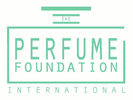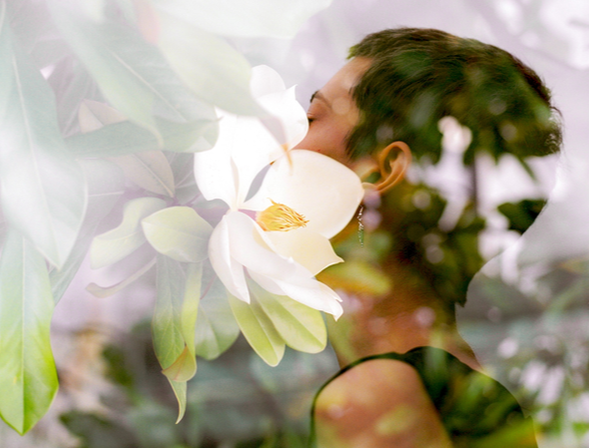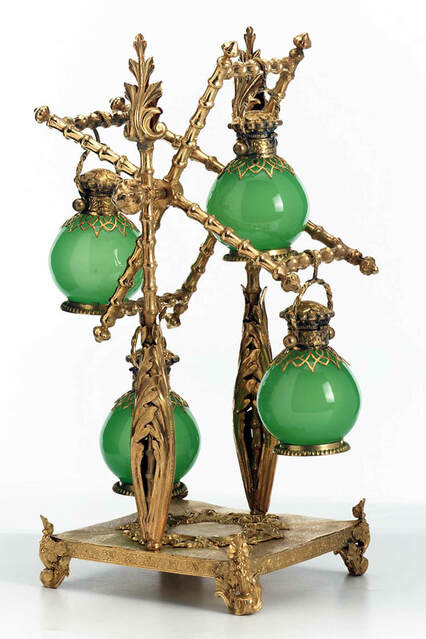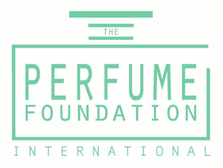|
Perfume has always been more than just a catalyst for emotions; its impact extends beyond mere pleasure and sentiment, encompassing the health of our bodies and vital energies. While modern society tends to limit perfume's significance to pleasure and emotional wellness alone, it is crucial to expand our perspective. Odorant molecules can subtly influence each body system through the olfactory and cutaneous pathways, making perfume a powerful tool for holistic daily well-being. As a Master Natural Perfumer, aromatherapist, and Naturopath with over 26 years of practice, I have witnessed the profound effects of olfaction and perfume firsthand upon the body, mind, and spirit, leading me to create numerous botanical perfumes for international brands, whether in cosmetics home or for fragrance use. By embracing botanical perfumes crafted with natural and organic ingredients, we can reconnect with nature and harness their healing properties. These perfumes benefit us personally and contribute to a more sustainable and eco-friendly approach to fragrance. So, let us venture into botanical perfumes, exploring their positive effects on our body, mind, and spirit. By embracing this holistic approach to fragrance, we can enhance our well-being and cultivate a deeper connection with the world around us. Perfume's Historical Significance Throughout ancient civilizations, perfume was employed for its therapeutic properties, addressing various ailments of the body and mind. It was more than just a pleasant scent; it was a form of medicine. For instance, perfumes were used as incense, pomanders, and aromatic vinegar to protect the body from miasmas. These fragrant materials, made only with natural herbs, oils, and plant essences, were revered as medicinal support. For instance, herbs, crushed resins, and spices like clove, myrrh, cinnamon, and agarwood were commonly used and known for their antibacterial properties. In addition to its medicinal uses, fragrance played a vital role in spiritual and religious practices. Perfume oils and incense facilitated a deeper connection with the divine and promoted introspection. Burning incense made one feel closer to the divinities, and the smoke of frankincense, myrrh, benzoin, agarwood, guaiac wood, and sage, among others, were considered portals to the higher self and raised consciousness. Perfumes have long been associated with sensory pleasure, enhancing seduction, and captivating our senses. Opulent and narcotic flowers, such as tuberose, rose, narcissus, champaca, davana, and ylang-ylang, were the perfect assets to attract and seduce a loved one. These scents were known to raise libido and desire, reflecting the cultural preferences of their respective countries. By Françoise Rapp, IPF Chair France and Certified Aromachologist The Role of a Natural Perfumer: Reconnecting with Ancestral Heritage As we delve deeper into the interconnectedness of our internal systems and the profound effects of natural essences, it becomes evident that the role of a natural perfumer is of utmost importance. A natural perfumer should master the properties of these essences and harness their potential to benefit our well-being. By understanding the therapeutic properties of various botanical ingredients, a natural perfumer can create fragrances that please the senses and promote physical and emotional health. By reconnecting with our ancestral heritage, a natural perfumer brings the wisdom of ancient cultures to today's urban life and consciousness. They honor the traditions and practices of our ancestors, infusing their creations with the knowledge passed down through generations. Natural perfumers use natural ingredients and sustainable practices to ensure their fragrances benefit individuals and contribute to the planet's well-being. The Olfactory and Cutaneous Pathways When it comes to the power of scent, there is no magic involved. The real magic lies in the composition and artistry of perfumers. When we inhale scent molecules, they interact with our olfactory receptors, triggering brain reactions. Specifically, these reactions occur in the limbic system, which is responsible for our emotions and memories. Through this intricate anatomical and neurological connection, we discover the direct relationship between inhaled odors, memories, feelings, and their influence on our behavior and well-being. The olfactory information, carried by neuro-electric signals, travels from the olfactory bulb through the olfactory tract and into the limbic brain. This information is divided into three circuits, leading to the hippocampus, the amygdala, and the septal nucleus. However, the hypothalamus plays a crucial role in various body functions as it controls the vegetative nervous system, the endocrine system, body temperature, hunger, thirst, and the sleep cycle. It performs these functions by processing stimuli from the peripheral, thalamus, cortex, and limbic systems. Additionally, the hypothalamus regulates the pituitary gland, which stimulates other endocrine glands such as the thyroid, parathyroid, adrenals, pancreas, and gonads. These glands produce hormones and cellular messengers, creating or modifying our physical and physiological behavior. Therefore, inhaling a natural fragrance sets off a complex biological pathway that ultimately leads to a shift in our behavior due to a chain of chemical reactions. The Influence of Skin When we think of perfume, our minds naturally gravitate toward the sense of smell, often neglecting the significance of our skin. However, perfumes were traditionally applied directly to the body for a reason. The heat of our skin allows the fragrance to develop and disperse in a beautiful sillage. At the same time, its pH level, whether acidic or not, enhances the development of specific fragrant notes and facets. Moreover, how scents applied to our skin can affect our overall well-being and vital energies is noteworthy. When perfumes are applied to the skin, they permeate the epidermis layers, facilitating direct absorption into the bloodstream. As a result, these fragrances can influence the body's physiological processes. So, how do we highlight the importance of the relationship between the skin and the brain? Firstly, these two organs share the exact embryological origin. On the 21st day of embryo development, the outermost cell layer gives rise to the nervous system and the epidermis. This shared origin explains the similarities between skin cells and neurons. The skin can be metaphorically described as a "second brain" or an "extension" of the encephalon. This connection between the skin and the brain emphasizes the profound impact that scents applied to our skin can have on our overall well-being and state of mind. It showcases the intricate interplay between our sensory experiences, memories, emotions, and the physiological responses within our bodies. Understanding and appreciating these relationships can enhance our appreciation for the art of perfumery and the transformative power of scent. The Multifaceted Effects of Odorant Molecules Scientific research has extensively studied the positive impact of natural essences on our psyche. At the same time, aromatherapists have recognized the critical role of essential oils in our body system and energetic anatomy. However, to fully comprehend the potential of other plant extracts, such as absolutes and CO2 extracts, it is crucial to understand the biochemistry of these natural essences. This knowledge is not only valuable for aromatherapy products but also for natural perfumes. Natural essences and extracts, as specific biochemical molecules, are integral to the identity of plants. These molecules can stimulate neurotransmitters, influencing mood, stress response, and cognitive functions. Various biochemical families, including monoterpenes, monoterpenols, aromatic aldehydes, and oxides, have been identified to impact vitality, happiness, and uplifting mood. The complexity of a plant's effectiveness arises from the totality of its composition and the interactions between each plant component. Scientists are continuously discovering and unveiling essential information about the role of specific aromatic molecules on neurotransmitters, such as linalool's impact on dopamine and serotonin. Although the subject is complex, it represents the future of alternative medicine. Several studies have reported increased dopamine levels in different brain regions, particularly the striatum, after exposure to linalool. Furthermore, the anxiolytic action of several essential oils rich in linalool is associated with the dopaminergic domain. This increase in dopamine levels partially explains linalool's anxiolytic action, as dopaminergic activation impacts pituitary activity and may directly or indirectly influence the level of ACTH. Research has shown that linalool decreases cortisol levels in the body, which is associated with reduced stress. Modulating cortisol levels could regulate pressure and limit its adverse effects. Endocrine System Influence Perfume molecules can interact with the endocrine system, regulating hormone production and affecting overall well-being. However, it is essential to note that certain synthetic perfume compounds can also have endocrine-disrupting effects. On the other hand, natural essences possess a complex biochemistry that offers potential benefits. There is ongoing research on plant hormones and their effect on the endocrine system. It is believed that essential oils impact the general endocrine system by mimicking human hormones through the action of plant hormones, also known as "phytohormones." These phytohormones can help rebalance, stimulate, or calm the endocrine system. Additionally, essential oils can have specific actions on glands. For example, cinnamon and coriander can help rebalance blood sugar levels, while black spruce and pine stimulate the adrenal cortex. Botanical Perfume: The Bridge of Elemental Nature Between Consciousness Natural essences profoundly affect our inner well-being, extending far beyond what we have previously explored. As a steadfast ally, they have accompanied human beings throughout history, harnessing their subtle powers. As consciousness evolves globally, perfume continues to weave its narrative. Forward-thinking companies have proclaimed that the products of today and tomorrow will significantly impact our soul's well-being. Perfume, breaking free from the confines of the market and fashion dictated by emotions, reclaims its original purpose. It aligns itself with the essence of life, reconnecting us with the elements of Nature in a genuine and awe-inspiring manner. Uncertainty looms over the future in a world clouded by a continuous stream of environmental, health, geopolitical, and political crises. This is precisely why an increasing yearning for peace and freedom is a profound call to reconnect with Nature. More than ever, botanical perfume influences our bodies and consciousness. This evolution transcends convention and paves the way for new well-being categories. Perfume reclaims its noble status, bridging the gap between the physical body, its divine essence, and the Divine itself. It carries a sacred dimension that holds profound significance today, drawing inspiration from a harmonious blend of tradition and modernity. The role of the natural perfumer extends beyond creating unique and aesthetically pleasing compositions; it facilitates a genuine and heartfelt reconnection with the power of Nature and the elements. Simultaneously, it awakens the sacred within us, raising our consciousness and transforming our subtle body chemistry. The Power of Genuine Natural Essences A crucial aspect lies in the natural perfumer's meticulous selection of high-quality essences. This selection process requires a comprehensive understanding of each essence, encompassing its scientific and chemical properties, medicinal applications, olfactory characteristics, and holistic attributes. Numerous factors influence the quality of a plant's essence, including its origin, cultivation methods, the timing of its harvest, and the preservation of its olfactory and "medicinal" qualities through appropriate extraction methods (such as gentle steam distillation below 100°C). Furthermore, proper storage in professional-grade bottles at suitable temperatures is paramount. A perfume's olfactory appeal and well-being benefits depend significantly on the exceptional quality of the chosen essences. Failing to adhere to the steps above will result in essences with diminished olfactory and biochemical profiles, yielding lower-than-expected results. In today's world, it is evident that the role of a natural perfumer extends far beyond being a creative artist or a marketer. Their work is significant in our heritage and profoundly impacts our well-being. In recent decades, perfumery has been seen as a blend of creativity and marketing. However, in recent times, the natural perfumer's role has evolved to encompass much more than just these two aspects. The compositions created by natural perfumers are not merely a way to reconnect with nature. Instead, they are potent vectors for expanding consciousness and promoting overall well-being. Each fragrance composition crafted by a natural perfumer has the potential to awaken our senses and elevate our spirits. A successful natural perfumer must be aware of the beneficial effects that their compositions can have on individuals. These fragrances can evoke emotions, uplift moods, and provide holistic benefits. The perfumer must understand the intricate relationship between scent and our physiological and psychological well-being. By harnessing the power of natural ingredients, the natural perfumer creates fragrances that smell pleasant while positively impacting the user’s overall wellness.
0 Comments
Your comment will be posted after it is approved.
Leave a Reply. |
Archives
June 2024
Categories
All
|
- HOME
- ABOUT
- IPF CERTIFICATION
-
COURSES
-
MASTER CLASSES
- Teaching Methodology
- Natural Raw Material Extraction Methods >
- Natural Candle Making
- Healing Gardening
- Sustainable Oud MasterClass
- World Perfume History Master Class
- Scent Design and Formula Building >
- Fragrant Botany & Chemistry >
- Perfume Design, Concept and Storytelling
- French Natural Aromachology #1
- French Natural Aromachology #2
- Olfaction Training for Children
- Accords - Chypre
- Accords - White Florals 1
- Accords - Fougeres and Aromatics
- FRAGRANCE DEVELOPMENT
- SPEAKERS
- EXHIBITIONS
- Partners
- Blog
- Contact




 RSS Feed
RSS Feed
